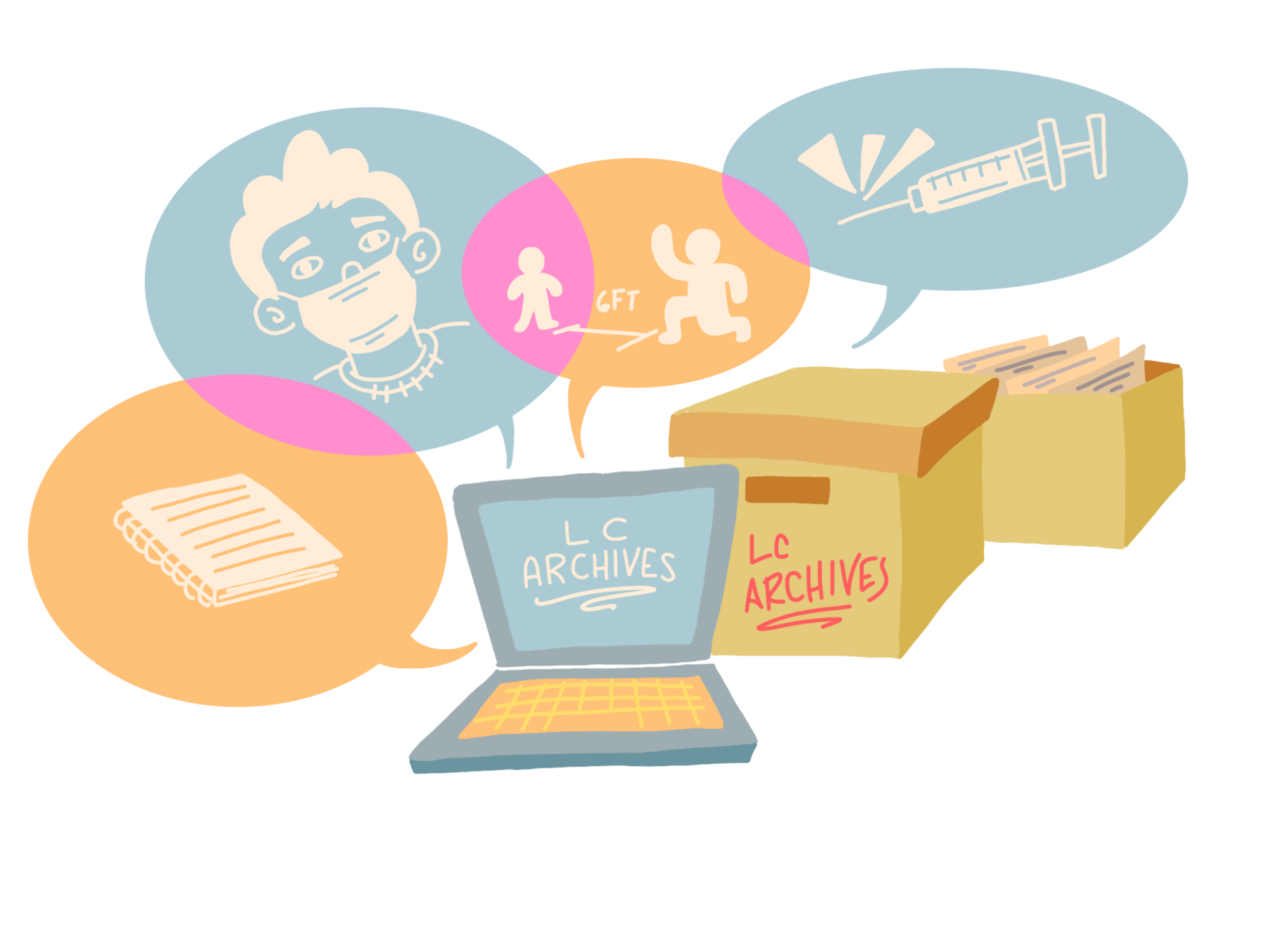
IN MAY OF 2021, Associate Professor of History and Department Chair Maureen Healy and two history students, Ben Warner ’22 and Jonny Laduke ’22, began the process of creating the LC COVID Archive to collect and document the history of COVID-19 at Lewis & Clark.
They hope to compile a diverse range of items by collecting submissions from students, faculty, alumni and other community members. Submitting to the archive is a very simple process, with a short Google form that asks for your name, email, affiliation with LC and a title with a brief description of the object submitted.
So far, they have received a range of submissions including photos, poetry, art, senior exhibitions and oral histories from Healy’s historical materials classes. The website even suggests submitting “masked selfies” and “playlists that got you through hard times.” Because the archive is completely digital, only digital submission formats such as JPG or PDF are accepted.
According to Laduke, the team is willing to accept a wide variety of submissions in order to make the archive as inclusive as possible. Besides personal health information, which they will not be accepting due to confidentiality concerns, Laduke explained that they will take anything.
“As long as it’s accepted in file format, I’d say it’s probably fair game. I would recommend not sending in anything you don’t want publicly posted on the internet,” Laduke said.
Because of this openness, the archive is shaped by what students submit.
“What I love about this archive is that almost everything in it is things people have chosen to give us that we didn’t go looking for,” Warner said. “So a lot of it has come organically to us; it’s a record of what a lot of different people have found valuable or meaningful.”
The traditional perception of what an archive looks like is a box of dusty, old documents. Although this is the case with many archives, the reality is that they are becoming increasingly digitized to improve their accessibility. Healy explains that the digital status of the COVID-19 archive in particular holds a special significance.
“That is kind of reflective of the moment we were in at the height of COVID, when everything was digital,” Healy said. “So I think this was a really appropriate topic to capture in a digital archive.”
Healy was inspired to create an archive by talking to students about their experiences during the pandemic. She also noted that many other institutions were creating similar archives. Thanks to the funding from the Faculty Library Ed Tech Committee, she was able to fund the student labor that brought Warner and Laduke into the project.
The importance of archives is a popular topic among historians. Archives are an essential tool to understanding history, as they provide a glimpse into life and events in the past. As a historian, archives are integral to Healy’s work, because they provide vital historical information and documents.
“I live for archives; I love archives,” said Healy. “Archives are the bread and butter of history writing in the future. If you want to tell the history a hundred years from now, you need materials left behind from the people at the time.”
Laduke echoed Healy’s statement, and added that he hopes future history students like himself may benefit from using the archive.
“Hopefully future history majors can draw from it and use it for their thesis, editing project or whatever they end up wanting to do with it,” said Laduke.
Warner believes that the archive can give people in the future an insight into the more personal aspects of the pandemic experience.
“A lot of the items we’ve gotten have been fairly personal: images of the haircuts people gave themselves during lockdown, or images of how they arranged their masks in their room (for example),” Warner said.
Although a portion of the project is currently available online, Healy, Laduke and Warner hope to be able to publish a more complete product by winter break. However, they plan to continue collecting submissions even after the archive is published.
“Please submit anything you have that you think would be interesting in documenting the history of COVID at LC,” Laduke said. “You’re living in history, or through history … It’s important to contribute what you can to the memory of this event.”
You can enter archive submissions at bit.ly/lccovidarchive. The archive will be accessible online through Watzek special collections.
Subscribe to the Mossy Log Newsletter
Stay up to date with the goings-on at Lewis & Clark! Get the top stories or your favorite section delivered to your inbox whenever we release a new issue.

Leave a Reply